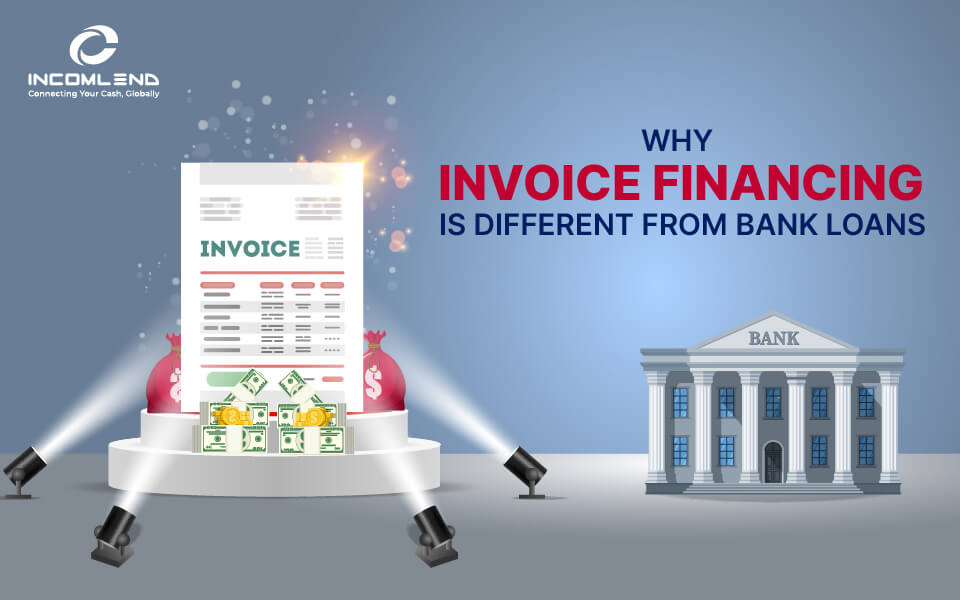Why some businesses may want to consider invoice financing over banks
January 17, 2023
When businesses are in need of financing, they usually choose between several options. These range from more traditional channels, like bank loans, to more recent innovations, such as invoice financing platforms.
Despite what some lenders may say, no solution is categorically better than others. Each has its own merits depending on the needs of the organization. Business leaders are mistaken in looking for the best financing solution – they should be searching for the best financing solution for them.
The operative words in that sentence are “for them.” Choosing a financing source is as much an internal search as it is an external one: business leaders should examine their strategic goals, key metrics like working capital, operational history, and other variables. This self-analysis will enable them to choose the financing solution that makes the most sense for their organization.
To help business leaders make the best choice, we have compiled several reasons why some business leaders may want to consider invoice factoring as an alternative to bank financing. Founded in 2016, Incomlend is a global leader in invoice financing for trade finance, so we are deeply familiar with the pros of this financing method vis-a-vis banks.
For your consideration, they are these:
1. Bank loans may not be as readily available as invoice financing.
Contrary to what some media portray, a business owner cannot just walk into a bank and request a loan. He will usually need a long operational history with the bank in question. Requirements will vary per market, but they may include a minimum number of years of maintaining accounts there, a minimum maintaining balance over this period, minimum revenue, and other such needs.
Because most businesses maintain only a few bank accounts, they will naturally have only a few financing choices, assuming they even meet the requirements. If the business owner does not like the terms offered by a bank, he is in tough luck. He may not have the financial history with another bank to draw a competing offer.
In contrast to this approach, a business seeking invoice financing can directly check its eligibility with the invoice financing platform. So long as the business meets all the requirements, they can avail of invoice financing – there is no need to have a long historical relationship with the platform as banks often demand, even though some trade history between the trade partners is required. This makes invoice financing arguably more accessible than bank loans for some organizations.
2. Bank loans take longer to acquire than invoice financing
As banks operate in a very traditional industry that is highly regulated, the process of obtaining a bank loan is understandably very intensive. The process will of course vary from bank to bank, but generally speaking, the time-to-money (from application to disbursement) can last up to several weeks or even months.
Invoice financing operates on a much quicker timeline. After submitting their eligibility requirements and getting approved, provided that both parties are responsive in submitting the documentation needed, an importer or exporter can then upload the export receivable that they wish factored. Within as little as two days from invoice upload, the enterprise can have cash in the bank.
The significantly quicker time-to-money process with invoice financing is not just a matter of convenience. Businesses in need of capital do not have the luxury of time. Getting cash sooner means that they can deploy it to more productive use sooner, whether that means re-investing in their business, or using it for revenue-generating activities.
3. Invoice financing protects your business reputation.
Apart from the requirements documented above, another common task of bank loans is trade references, often from customers of the business seeking a loan.
This requirement may represent a business risk for the importer or exporter. The first is reputational: other organizations may be wary of a business that seems unstable by virtue of its seeking a business loan.
Bad partners may use this to their advantage. Importers and exporters negotiate on terms all the time, as customers and vendors. If the importer knows that the exporter is pursuing a bank loan because they were asked to serve as a credit reference, the importer can use this to their advantage at the negotiating table. The importer could pressure the exporter into accepting worse terms, knowing that they are experiencing a financial crunch of some kind.
Invoice financing, in contrast, does not expose enterprises to either of these risks. They do not need to harm their business reputation by making others aware they are pursuing capital. As a result, they do not come to the negotiation table at a disadvantage.
Invoice financing, in fact, creates more collaborative relationships between importers and exporters. In the case of importers, for example, they do not have to delay payments to their partner exporter in an effort to preserve their own working capital. With invoice financing, their partner is paid immediately, and the importer is tasked with paying back the platform. This preserves their working relationship and may even provide benefits to the importer, such as when they need special requirements or favors from their export partner.
The decision is yours
Again, there is no right or wrong option for businesses choosing between bank loans or invoice factoring. There may be businesses better suited for bank loans. If, on the other hand, an importer or exporter does not have an existing financial history with a particular bank, needs their capital much sooner than a timeline of weeks or months, and wants to be spared the business risk that comes with asking for credit references, invoice financing may be the best option.
